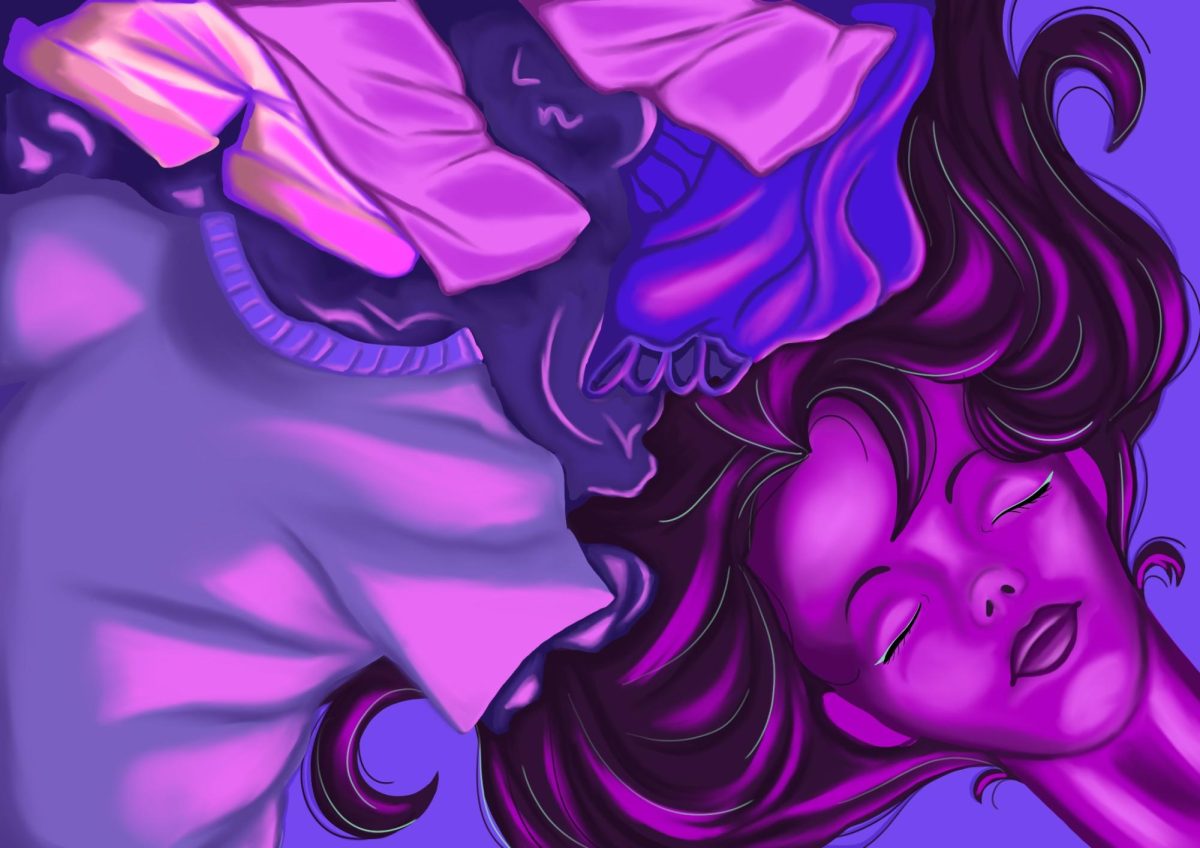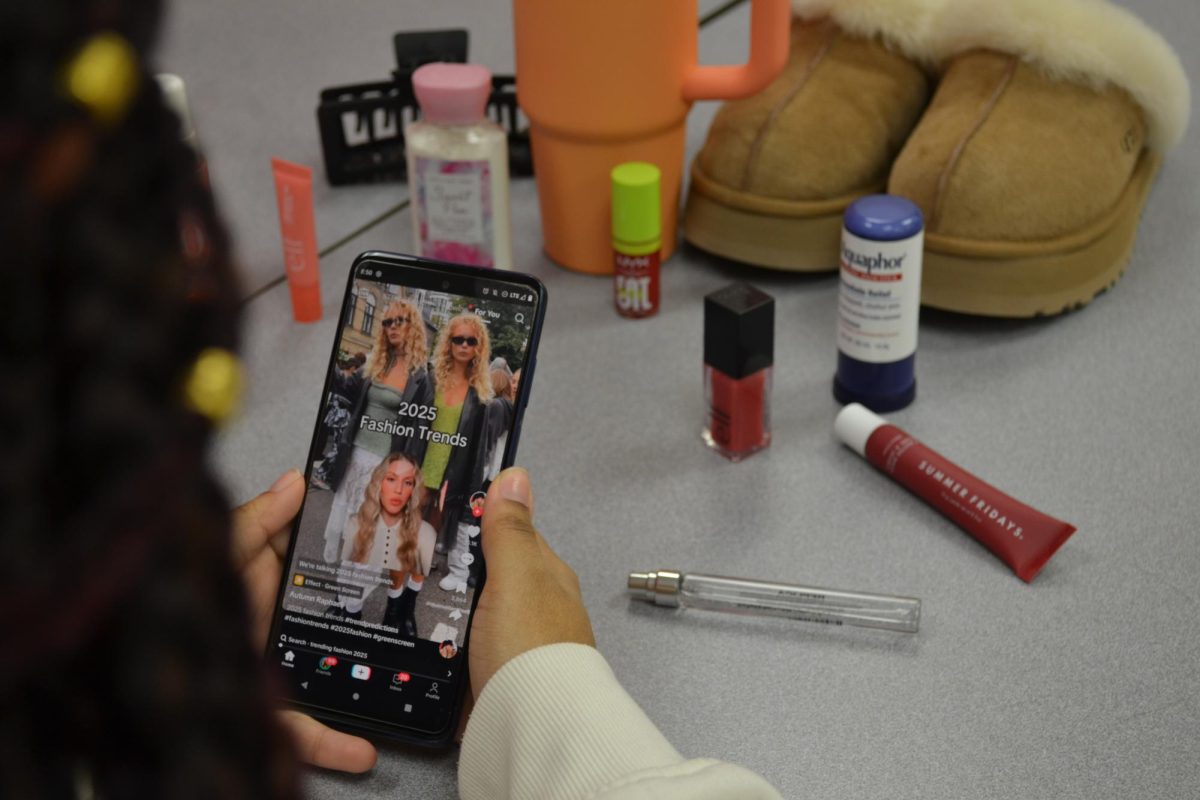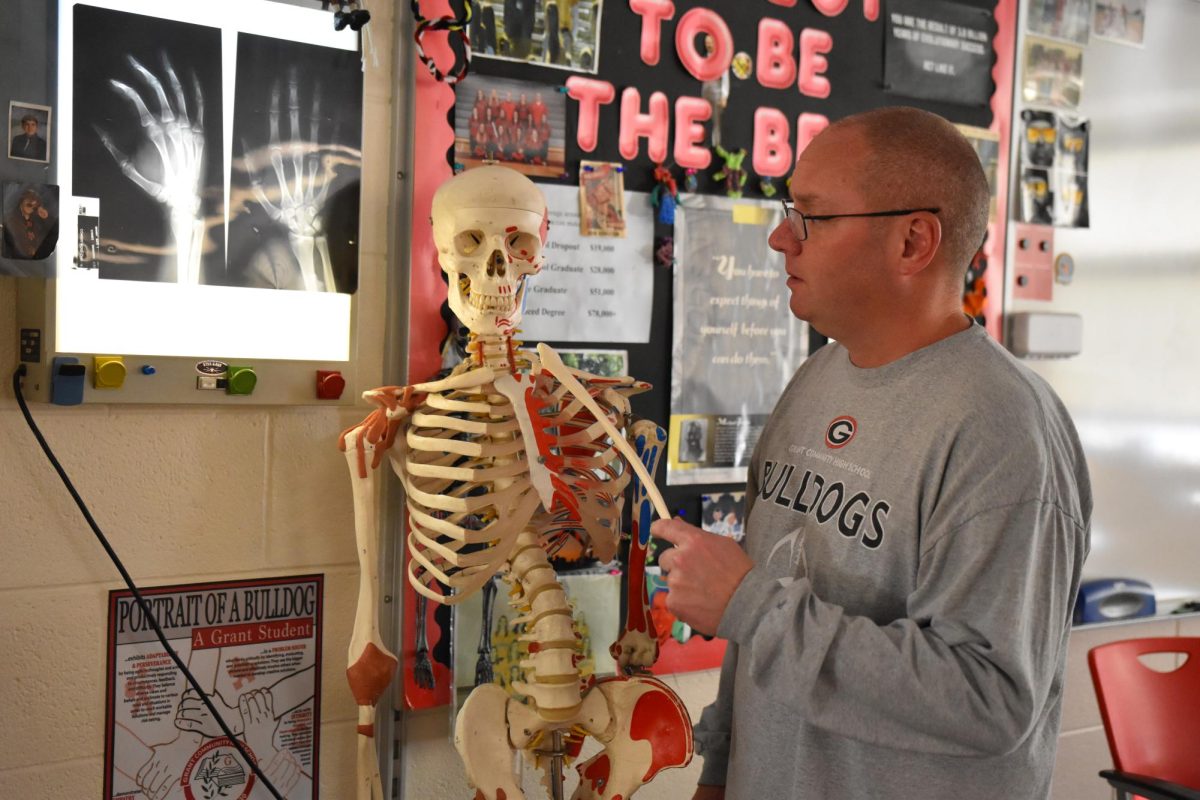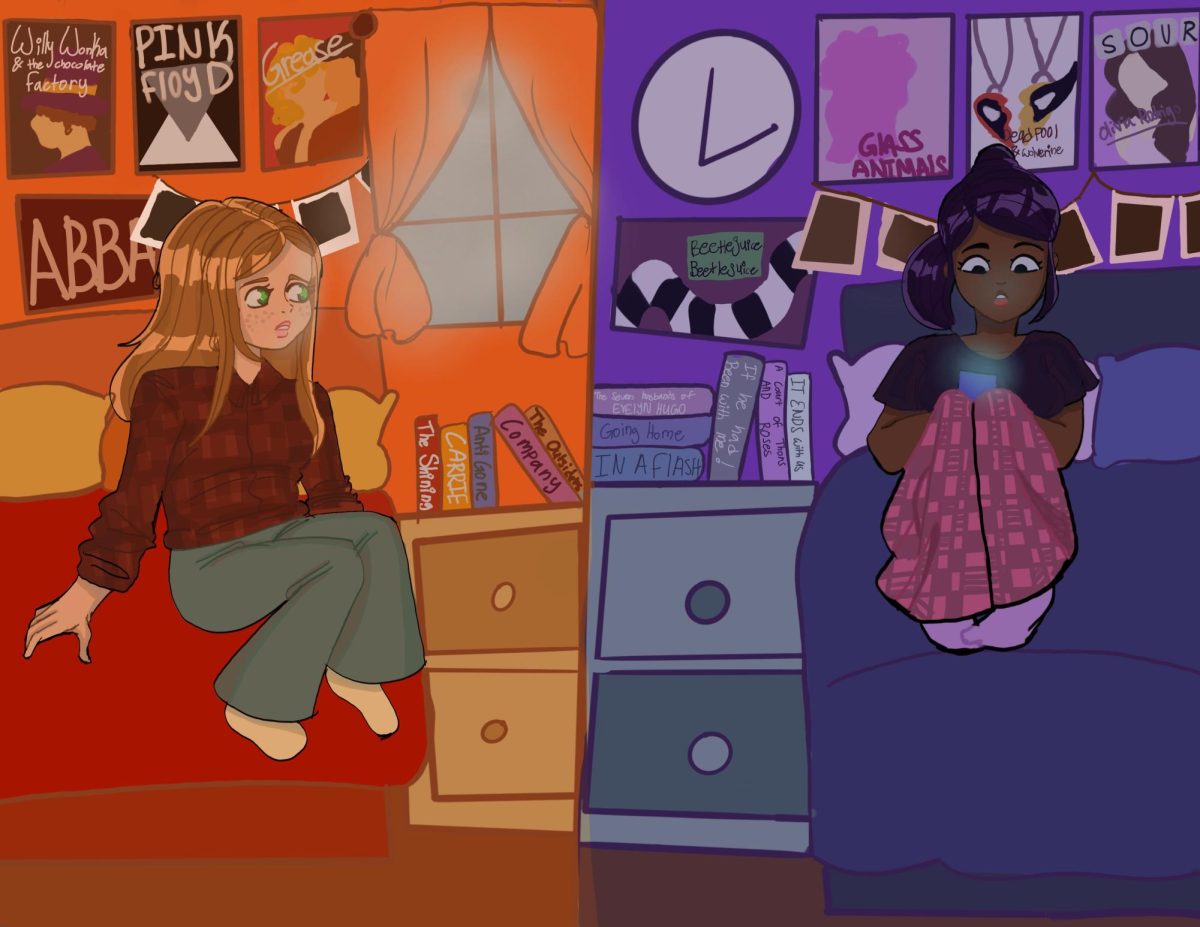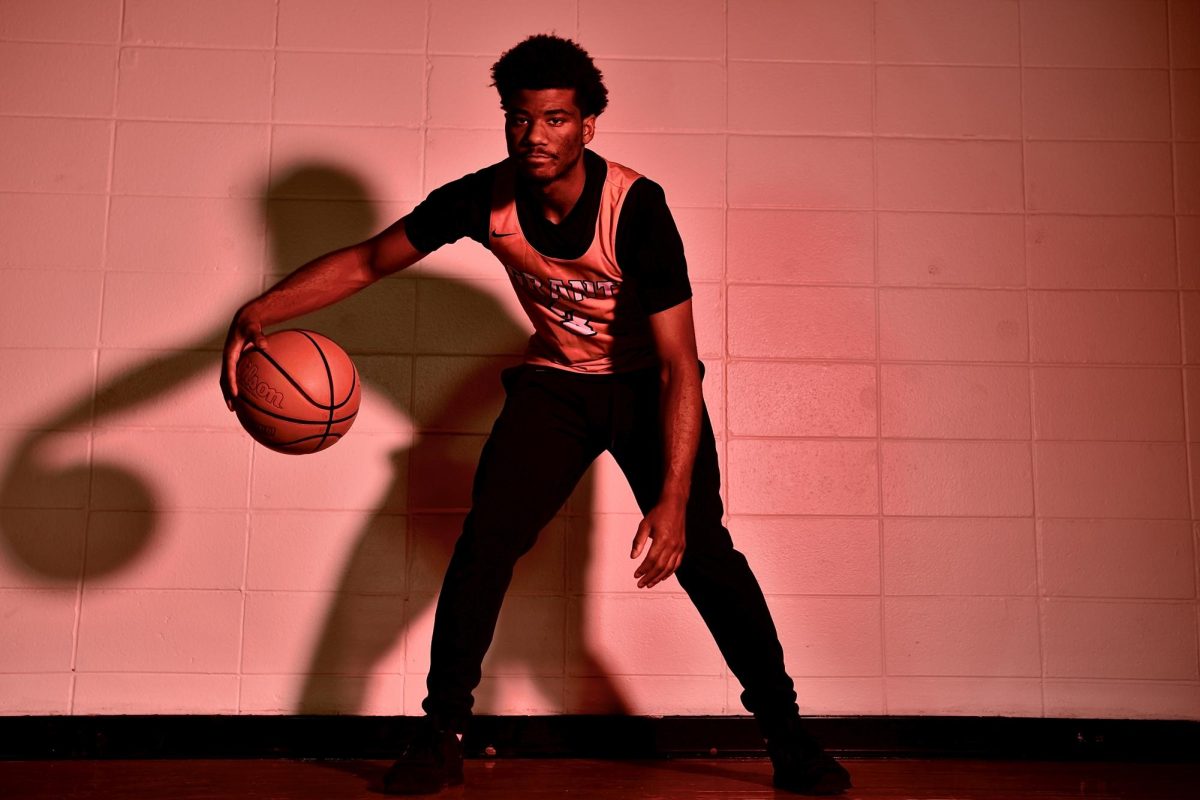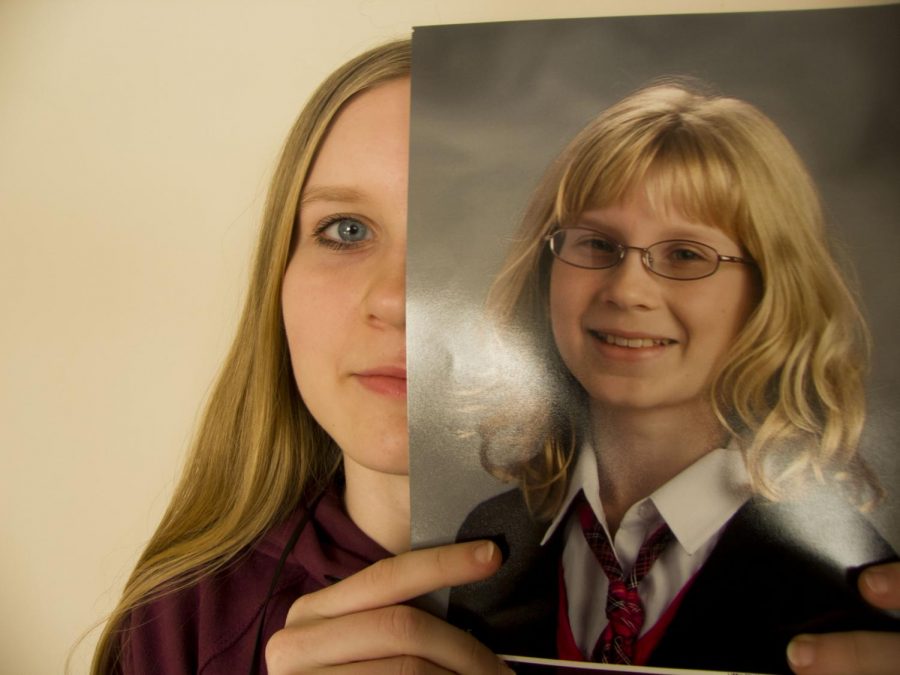Blocking Out the Present
February 20, 2019
The past is a dangerous place. It’s where we hide all of our embarrassing mistakes, past arguments, depressing memories and so much more. Because of the dangers of the past, it’s best to stay away from it by focusing our minds on the present. Even though we know we shouldn’t, sometimes we allow our minds to travel back in time to rethink some of the things that can pull us mentally away from the present, and once we’re there, it can be difficult to get out. For some people the past is something they can’t leave behind, so they begin to leave behind their present instead. When students leave their present behind, they can begin to develop several mental illnesses that can seriously harm them. Being stuck in the past is something that a lot of people don’t recognize about themselves because it’s something they become used to, but once you do realize it, it can be difficult to deal with. After realizing the problem, many students tend to find themselves lost and stray away from receiving help. If a student with this problem continues to stray away from a solution, they can become stuck in the past for much longer, and it could become more difficult to fix. Gabi Kezios, a freshman here at Grant is a victim of this problem and has been for some time. “Sometimes it feels like focusing on the past is all I can do,” says Gabi. “I think ‘well, it’s already [happened] and I can’t really do anything about it.” Several students with this problem tend to feel the same way as Gabi, and it can seriously impact one’s mental health. Once students begin to develop mental illnesses, they begin to link onto other mental illnesses that are typically paired with the illness they already had. According to Dr. Steven M. Melemis from IWantToChangeMyLife.org, 72% of people with anxiety will also suffer from depression, and 48% of people that
have depression also end up finding themselves struggling with anxiety. This same problem can also be applied to sports, and how thinking about past mistakes in the game you play can cause you to struggle with progressing because you’re afraid of making the same mistake twice. Junior, student athlete Laura Schwabe elaborates on the athlete perspective of being stuck in the past, “I would get hung up on a play, and I would never want to do that play again,” says Laura as she recalls her experience as softball player. “Whenever I’d play I would always hope [the mistake] wouldn’t happen. That kind of almost kept me contained [on the mistake].” Several students in sports also face the same problems as Laura had, and it causes them to overthink their actions in the game, which could end in lost win. To become the best athlete you can be, people can find it beneficial to use their mistakes as a way to learn. As Michael Jordan once said, “I’ve failed over and over again in my life and that is why I succeed.” Along with sports, several people feel as if their mistakes don’t help them towards anything, they just make them look unintelligent. According to Carol Dweck, a researcher from Stanford University, “Students [with fixed mindset] believe their basic abilities, their intelligence, their talents, are just fixed traits. They have a certain amount and that’s that, and their goal becomes to look smart all the time and never look dumb.” When asked about how this problem occurs, most people say it may be because of a mental illness: this isn’t always the beginning case. To Mrs. Gill, a counselor here at Grant, the problem is typically caused by trauma the person may have experienced in the past. “They can stay stuck in the past because they haven’t been able to work through [their trauma] all the way,” says Mrs. Gill. “But I also think sometimes that just adolescents in general can stay stuck in something. […] you’re learning as a child and an adolescent that sometimes you don’t always get your way, and so I think sometimes people can stay stuck in places that aren’t healthy.” While several students may develop the problem due to previous mental illnesses, many students can also develop it due to past trauma or trauma that may have just recently occurred. When you’re constantly investing in the past, your present can begin to suffer. According to Jim Taylor, a psychiatrist from Phychologytoday.com, overinvesting yourself in something such as sports or the past can result in putting your self- esteem on the line along with developing constant fear and anxiety to do something, in his example, to play a sport again after a mistake. Not only can you develop mental illnesses, but you can also jeopardize grades, friendships, relationships; just about everything you worked for can be erased when you have this problem. Students with this problem tend to lose a lot of what they have, and it can cause the brightness of your future to dull. “It’s kind of like a sense of anxiety” says Gabi. “It’s like […] if I do this, then [a mistake] is going to come back up and then everyone’s going to be like ‘Oh, I forgot you did that, that was terrible.” Having this problem can also cause you to miss out on current available opportunities that could change your future for the better, and most opportunities will never come up again. Many students in sports make mistakes that cause them to question their ability to play the sport, and whether they should continue playing or not. When students have these thoughts, it can give them several different mental disorders that make them question how good of a sports player they are. The mistakes students make in sports, however, are usually commonly made mistakes. For Laura, a mistake could be missing several baskets in a basketball game. “ I would miss so many shots in the game and it was just terrible,” says Laura. “I would think ‘Oh my gosh, I suck, I should just quit, like I’m not good.” Laura, however, continued to play the sport and began to accept her mistakes. When students allow the past to overrun their present, they begin to miss out on their high school experience because they are mentally stuck way too far behind in the past.
A lot of people at this school carry this problem, so why does this hap-
pen to students? “They might be carrying some emotions or feelings that are impacting how they interact every day,” says Mrs. Gill. “That can kind of impact their present, and being able to function. “ Several students with this problem tend to be holding in their emotions and it can cause them to miss out on a lot of what is happening in the present. Once you’re in the past, how do you get out? Once people realize there is a problem, they are anxious to get rid of it but don’t know how. Being stuck in the past is something you can try solving by putting a little bit of time and effort towards a new hobby such as learning a new instrument or learning a form of art. For many people, however, the problem is too extreme to solve on their own. “I think counselling can be helpful, to be able to talk about stuff that maybe people aren’t able to talk about in their everyday life,” says Mrs. Gill. “Maybe counselling isn’t necessary. Maybe it’s journaling or figuring out a way, dependent on an individual, how to come to terms with the past and figure out how to let go of that and move on.” The counseling staff at Grant is always available to help out students who need assistance with their problems. For everyone stuck in the past, just know you aren’t alone. Several students all around the school have the same exact problem, and are also looking for a helping hand out of the past. If you have this problem and are looking for a way out of it, don’t be afraid to talk to your school counselor or parents
to begin looking for an escape from your past. Getting out of the past can be just as easy as getting into it, as long as you try your best to get out. “If you focus too much on the past then your life flashes before your eyes,” says Michelle Lopez, a Grant freshman who has adopted the ability to focus on the present. “Focus on now because you can’t change what you did in the past.”

